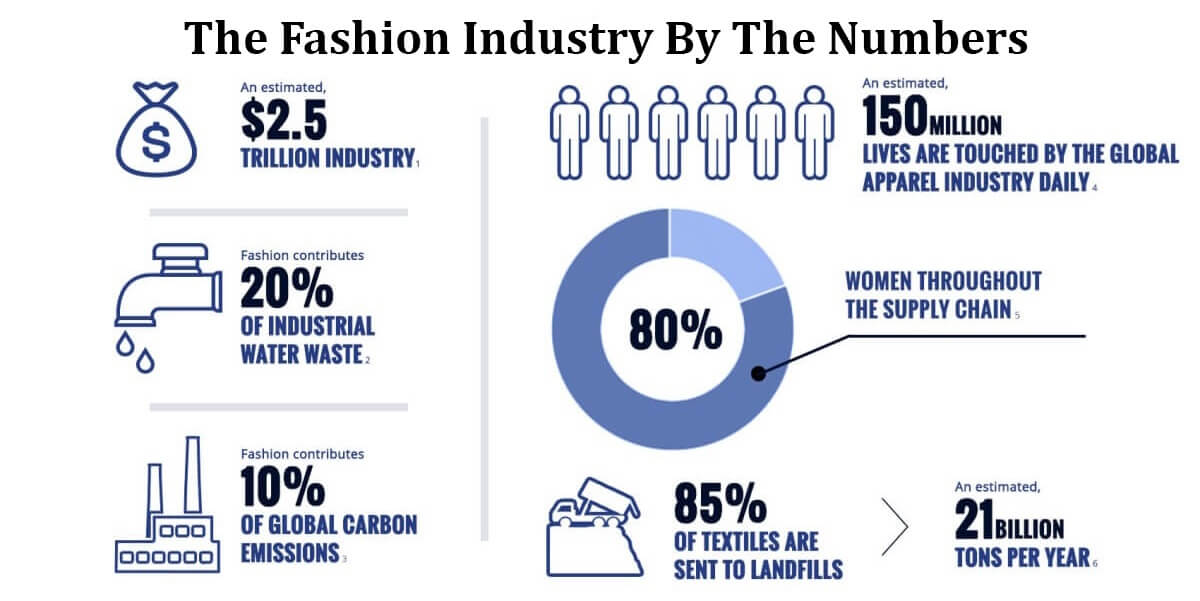
Fashion with Integrity: Navigating Ethical & Fair Trade Elegance
In a world increasingly conscious of its impact, ethical and fair trade fashion has emerged as a beacon of change within the industry. This paradigm shift places a spotlight on sustainable and humane practices, revolutionizing the way we perceive and engage with fashion. Let’s explore the essence and significance of ethical and fair trade fashion.
The Foundation of Ethical Fashion: Values and Principles
Ethical fashion is built upon a foundation of values and principles that prioritize social and environmental responsibility. From fair wages and safe working conditions to sustainable sourcing of materials, ethical fashion seeks to minimize harm and promote positive practices throughout the entire supply chain. This commitment to integrity extends to every aspect of the production process.
Fair Trade: A Commitment to Equity and Transparency
Fair trade fashion goes hand in hand with ethical practices, emphasizing equity and transparency. Brands that adhere to fair trade standards ensure that workers receive fair compensation for their labor and work in safe conditions. Fair trade principles also promote community development, empowering artisans and workers to build sustainable livelihoods.
Sustainable Materials: Nurturing the Planet
One of the pillars of ethical and fair trade fashion is the use of sustainable materials. This includes organic cotton, recycled fabrics, and other eco-friendly alternatives. The emphasis on sustainable materials minimizes the environmental impact of fashion production, promoting biodiversity, reducing water consumption, and mitigating the use of harmful chemicals.
Local Empowerment: Supporting Artisans and Communities
Ethical and fair trade fashion often involves collaboration with local artisans and communities. By embracing traditional craftsmanship and empowering local talent, ethical fashion fosters cultural diversity and supports communities economically. This approach contributes to the preservation of unique skills and promotes a more inclusive and interconnected global fashion landscape.
Transparency in the Supply Chain: Informed Consumer Choices
A crucial aspect of ethical and fair trade fashion is transparency in the supply chain. Brands committed to transparency provide consumers with information about the origins of materials, the production process, and the impact of their choices. This transparency empowers consumers to make informed decisions aligned with their values, fostering a sense of accountability within the fashion industry.
Slow Fashion Movement: Quality over Quantity
Ethical and fair trade fashion aligns with the principles of the slow fashion movement. This movement advocates for a shift away from fast fashion, emphasizing the importance of quality over quantity. By encouraging consumers to invest in timeless, well-made pieces, ethical fashion promotes a more sustainable and mindful approach to wardrobe choices.
Social Responsibility: Beyond Fashion Trends
Ethical fashion extends beyond mere trends, embracing social responsibility as a core value. Brands engaged in ethical and fair trade practices are committed to creating positive change. This may involve initiatives such as charitable partnerships, community development projects, or contributions to social causes, showcasing a holistic commitment to making a meaningful impact.
Challenges and Progress: The Journey Towards Ethical Fashion
While the fashion industry faces challenges in fully embracing ethical and fair trade practices, significant progress has been made. Brands, consumers, and industry stakeholders are increasingly recognizing the importance of ethical considerations. The ongoing journey towards ethical fashion involves addressing issues such as supply chain complexity, consumer awareness, and the need for systemic change.
Consumer Influence: Driving the Shift
Consumer choices play a pivotal role in driving the shift towards ethical and fair trade fashion. As awareness grows, more individuals are opting for brands that align with their values. The demand for transparency, sustainability, and ethical practices creates a ripple effect, encouraging more brands to adopt responsible approaches and contributing to a positive transformation within the industry.
Building a Wardrobe with Impact: A Call to Action
In conclusion, ethical and fair trade fashion is a call to action for both consumers and industry players. By choosing fashion with integrity, we contribute to a more sustainable, equitable, and compassionate world. Building a wardrobe with impact involves embracing ethical principles, supporting fair trade practices, and collectively shaping the future of fashion with a commitment to integrity.
To explore the world of ethical and fair trade fashion and discover brands committed to sustainability, visit beautifulnhealthy.com. This platform showcases a curated selection of ethical and fair trade fashion options, providing resources and insights for those eager to embrace a fashion journey rooted in integrity.
